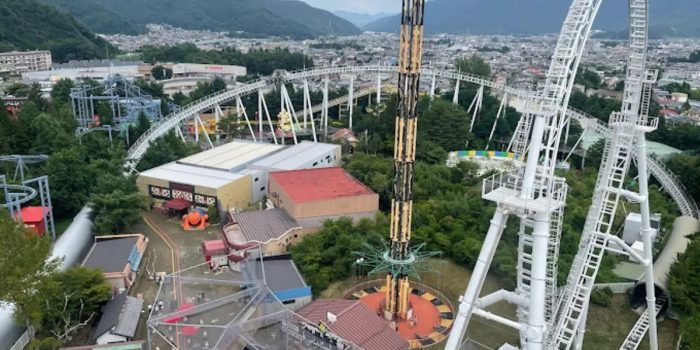Fuji-Q Highland which used to be a renowned theme park in Japan has just very recently announced the closure of its iconic roller coaster ride named Do-Dodanpa. This amazing roller coaster also used to be celebrated as the fastest roller coaster in the world. This upsetting decision is a result of a series of unfortunate injuries and incidents which eventually led to some serious concerns regarding the security of the rides as well as their build.
Originally opened in 2001 as Dodonpa, the ride garnered immense popularity for its breathtaking speed, catapulting riders at 106 miles per hour in just 1.8 seconds. Its fame only grew after a 2017 upgrade, which introduced a 160-foot vertical loop and increased the speed to 111 miles per hour in 1.56 seconds.

The Do-Dodanpa experience was marked by a dramatic pre-launch sequence, featuring drum sounds and a simulated heartbeat, heightening anticipation. Riders then experienced intense G-forces, reaching up to 3.75G, comparable to the forces experienced by astronauts during space launches.
The park tried hard to make the ride safer, but it didn’t work. So, they had to make the tough choice to close it forever. They couldn’t find a way to stop people from getting hurt, even if they tried making the roller coaster go backward or stopping it during the ride. They made this decision because they cared a lot about keeping everyone safe.
However, despite its allure, the ride faced scrutiny due to safety concerns. Reports of injuries began emerging, with incidents ranging from minor to severe, including broken bones. The surge in injuries, particularly after the 2017 upgrade, prompted the park to suspend operations and engage in discussions with the manufacturer to address safety issues.
Some people felt sad about the ride closing because they loved it, while others agreed with the decision because safety comes first. Some people said that most injuries happened because riders didn’t follow the safety rules. This shows how important it is for both visitors and park staff to be careful and follow the rules to stay safe.
Despite the closure, the legacy of Do-Dodanpa endures as a symbol of thrill and adventure. Its demise serves as a reminder of the delicate balance between exhilaration and safety in the realm of amusement park attractions, prompting ongoing efforts to innovate and enhance safety standards within the industry.


